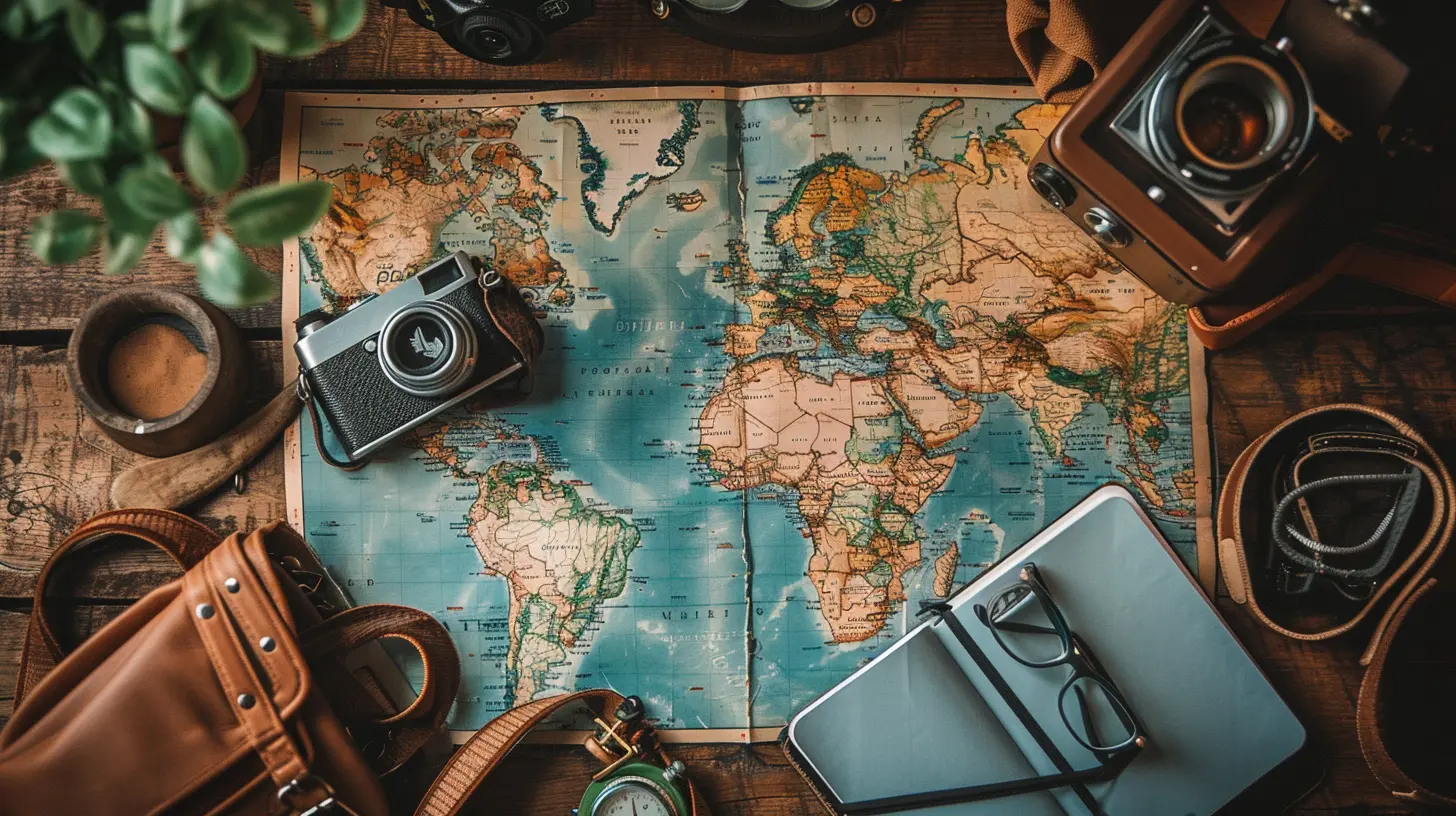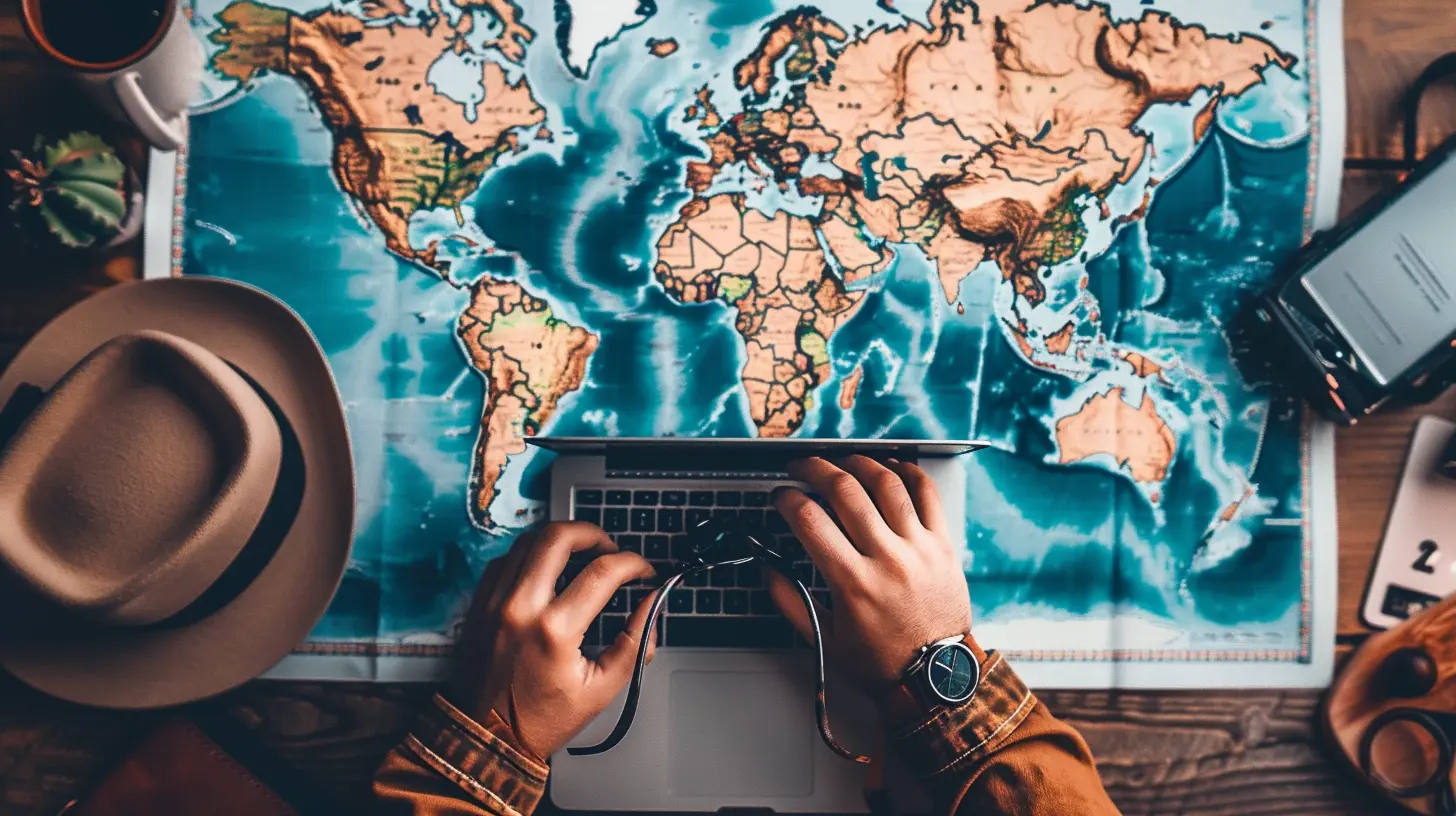How to Plan a Budget Travel Itinerary
2 November 2025
Traveling doesn’t have to cost a fortune. With the right planning, a spirit of adventure, and a little creativity, you can see the world without emptying your bank account. Whether you're craving sandy beaches, bustling cities, or serene mountain retreats, a well-crafted budget travel itinerary can make your dream trip a reality.
So, how do you plan an unforgettable journey without breaking the bank? Let’s dive in!

1. Set Your Travel Budget
Before you start mapping out your trip, you need to know your financial limits. How much can you afford to spend?a) Determine Your Total Budget
Are you traveling on a shoestring budget, or do you have a little flexibility? Consider how much you can allocate for:- Transportation (Flights, buses, trains, or gas)
- Accommodation
- Food and drinks
- Activities and sightseeing
- Emergency funds
b) Prioritize Spending
What matters most to you? Would you rather splurge on experiences and save on food? Or stay in a nice hotel but cut costs elsewhere? Rank your priorities so you know where to adjust.
2. Pick an Affordable Destination
Not all destinations are created equal when it comes to cost. Some places stretch your money further than others.a) Travel Where Your Money Goes Far
Southeast Asia, Eastern Europe, and parts of South America offer incredible experiences at a fraction of the price you’d pay in Western Europe or the U.S. Research destinations where the cost of living is low but the adventure is high!b) Consider Off-Season Travel
Peak travel seasons often mean inflated prices for flights, hotels, and attractions. Traveling in the shoulder season (just before or after peak season) can save you a bundle while still offering great weather and fewer crowds.
3. Find Cheap Flights and Transportation
One of the biggest expenses when traveling is getting from point A to point B. But there are tricks to finding cheap flights and transport.a) Use Flight Search Engines
Websites like Skyscanner, Google Flights, and Kayak can help you score the best deals on airfare. Be flexible with your dates and destinations to find the lowest prices.b) Book in Advance (But Not Too Early!)
For international flights, booking about 2-3 months in advance often yields the best deals. Domestic flights are usually cheaper when booked 1-2 months ahead.c) Consider Alternative Transportation
- Trains and buses can be significantly cheaper than flights.- Rideshare apps and carpooling services save money on long-distance travel.
- Overnight transportation (trains and buses) can double as accommodation, killing two birds with one stone!

4. Budget-Friendly Accommodation Options
a) Stay in Hostels or Guesthouses
If you don’t mind sharing space, hostels are one of the most affordable lodging options. Many offer private rooms at budget-friendly prices.b) Use Budget-Friendly Hotel Alternatives
- Airbnb: Rent a private room or even an entire apartment at a fraction of hotel costs.- Couchsurfing: Stay for free with locals who offer their homes to travelers.
- Homestays: Experience local culture and save money by staying with a host family.
c) Try House-Sitting or Volunteering
Websites like TrustedHousesitters allow travelers to stay in beautiful homes for free in exchange for pet or house care. Volunteering through programs like Workaway can provide free lodging in exchange for a few hours of work per day.5. Eat Well Without Overspending
Food is one of the highlights of any trip, but dining out for every meal can drain your budget quickly.a) Eat Like a Local
Street food and hole-in-the-wall restaurants often provide the most authentic and affordable meals. Plus, who doesn’t love a delicious $2 meal?b) Cook Your Own Meals
If your accommodation has a kitchen, buying groceries and cooking can save you a fortune. Even simple breakfasts and sandwiches for lunch can make a big difference.c) Look for Free or Discounted Meals
- Some hostels and hotels offer free breakfast. Start your day fueled-up without spending extra cash!- Many cities have happy hours or food specials—perfect for budget-conscious travelers.
6. Plan Your Activities Wisely
You don’t need to spend a lot to have fun while traveling.a) Take Advantage of Free Attractions
There are always free things to do no matter where you travel. Think:- Beautiful hikes and nature trails
- Free museums and historical sites
- Walking tours (many cities offer free ones—just tip your guide!)
b) Look for City Tourist Cards
Many cities sell tourist cards that provide discounted access to major attractions, public transport, and tours. If you plan on visiting multiple sites, these passes might be worth the investment.c) Be Selective About Paid Activities
Rather than trying to do every single activity available, pick one or two must-do experiences and save your money on extras. Sometimes, the best experiences are the ones that don’t cost a dime.7. Use Smart Money-Saving Hacks
a) Travel with a Reusable Water Bottle
Many countries have safe drinking water, and bringing your own bottle saves you from buying bottled water every day.b) Avoid Foreign Transaction Fees
Some banks charge hefty fees for international transactions. Get a travel-friendly debit or credit card that won’t eat away at your budget.c) Use Public Transport Over Taxis
Buses, trams, and metro systems are almost always cheaper than taxis or rideshares. Walking is even better—it’s free and allows you to experience the city like a local.
8. Pack Smart to Avoid Extra Costs
Packing efficiently can help you avoid hidden travel expenses, such as baggage fees or having to buy essentials at inflated tourist prices.a) Pack Light to Avoid Baggage Fees
Stick to a carry-on whenever possible. Many budget airlines charge extra for checked luggage, and dragging a heavy suitcase around is no fun anyway.b) Bring Essentials to Avoid Tourist Markups
Need sunscreen, adapters, or medicine? Buying these at tourist hotspots can be crazy expensive. Pack wisely so you don’t pay the "tourist tax."9. Be Flexible and Embrace the Unexpected
Budget travel requires adaptability. Sometimes, things won’t go as planned—but that’s part of the adventure!a) Be Ready to Adjust Your Plans
Maybe a cheaper accommodation option pops up last minute, or a local suggests an amazing (and free!) activity you hadn’t considered. Staying flexible allows you to grab great deals as they come.b) Say Yes to Adventures
Some of the best experiences come from spontaneous decisions. Whether it’s a free festival, a road trip with newfound friends, or a chance to learn a new skill—say yes!
Final Thoughts
Planning a budget travel itinerary isn’t about cutting every cost—it’s about making smart choices so you can stretch your money without sacrificing the experience. With the right strategies, a little planning, and a spirit of adventure, you’ll create unforgettable memories without breaking the bank.So go ahead—pack your bags, set your budget, and hit the road. The world is waiting for you!
all images in this post were generated using AI tools
Category:
Budget TravelAuthor:

Pierre McKinney
Discussion
rate this article
1 comments
Esther McNeal
This article offers invaluable tips for crafting a budget-friendly travel itinerary. It emphasizes the importance of researching destinations, using budget accommodation, and planning activities wisely. A well-structured itinerary can enhance your travel experience while keeping expenses in check, making exploration accessible and enjoyable.
November 3, 2025 at 4:41 PM

Pierre McKinney
Thank you for your feedback! I'm glad you found the tips helpful for creating a budget-friendly travel experience. Happy travels!


